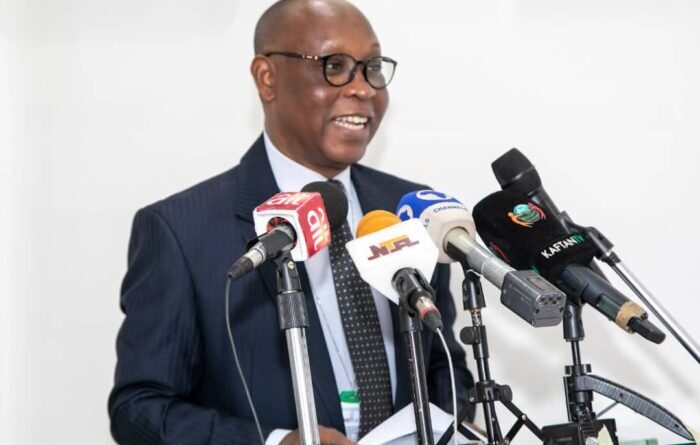NEITI engages international community to enhance extractive sector transparency.
Nigeria’s Extractive Industries Transparency Initiative (NEITI) is eager to work with other countries to improve their oil, gas, and mining industries.
At a meeting in Abuja with key foreign missions in Nigeria, the Agency’s Executive Secretary, Dr. Orji Ogbonnaya Orji, made the announcement.
Mrs Obiageli Onuorah, Deputy Director/Head Communication and Stakeholders’ Management, released a statement on the matter on Thursday in Abuja.
Ambassador Pieter Leenknegt of Belgium, High Commissioner James Christoff of Canada, and Chargé d’Affaires Leann Johnston of the Australian High Commission are among those leading diplomatic missions in Nigeria.
In regards to Nigeria’s oil, gas, and mining industries, Orji stated that NEITI is eager to provide technical support, pursue governance reforms, and increase its involvement.
He emphasised the company’s dedication to overcoming challenges by opening and repositioning the solid minerals sector to public involvement and debate in preparation for revolutionary reforms.
Orji praised NEITI’s global connections, civil society alliances, and government ownership, saying the organisation would focus on the solid minerals sector despite its relatively small contribution to GDP.
He was overjoyed to hear that the embassies of Belgium, Canada, and Australia had all indicated renewed interest and assistance.
According to the release, the ambassadors also noted Nigeria’s dedication to implementing the global Extractive Industries Transparency Initiative (EITI) and said they followed NEITI’s reports and actions in the extractive sector with keen interest.
Mr Pieter Leenknegt, Ambassador of the Kingdom of Belgium to Nigeria, praised the comprehensiveness and thoroughness of NEITI’s Oil, Gas, and Solid Minerals Industry Reports for 2021.
Leenknegt praised NEITI for its “courage in public disclosures” to improve openness and accountability in the sector, as well as for its “groundbreaking disclosures” on outstanding remittances to shore up government revenue.
In order to expand NEITI’s operations into the solid minerals industry in a way that attracts investors, particularly from Belgium, the Belgian envoy has offered his country’s support by focusing on capacity building.
Mr. James Christoff, Canada’s High Commissioner, expressed similar enthusiasm for Nigeria’s EITI implementation, noting that his country has a vested interest in Nigeria’s solid minerals industry.
He underlined that his objective would be to be better equipped with trustworthy information and statistics by cooperating with a respected institution like NEITI, which would help prospective Canadian investors make educated business decisions.
Christoff stated that the Canadian High Commission in Nigeria was eager to work in direct partnership with NEITI in the areas of data exchange, training, capacity building, and technical support because Canada is a supporter of the global EITI.
He was pleased with NEITI’s efforts to tackle unlawful mining through policy reforms and interaction with civil society organisations and the Federal Ministry of Solid Minerals Development.
The Australian High Commissioner’s Chargé d’Affaires, Ms. Leann Johnston, has praised Nigeria’s new economic diversification programme and voiced optimism that NEITI will provide solid statistics and facts to back up this effort.
In 2004, the President of the country established the National Extractive Sectors Openness Initiative (NEITI) as the primary anti-corruption organisation charged with establishing openness, accountability, and good governance in the extractive sectors of the country.
NEITI is a member of the global extractive industries transparency initiative (EITI), which is being implemented in 57 countries with worldwide headquarters in Oslo, Norway.




